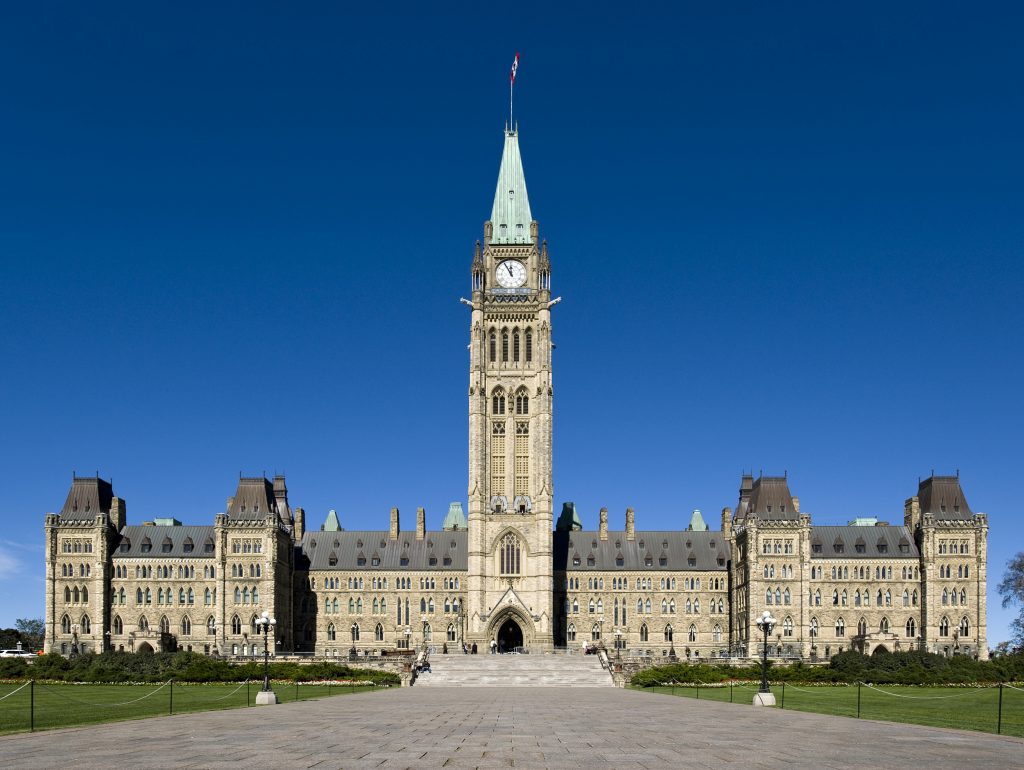Immigration
Four provinces calling on Canadian government for greater say over immigration
Citing labour shortages across the country, the immigration ministers of Ontario, Alberta, Saskatchewan, and Manitoba want to select more immigrants.

FILE: The Peace Tower dominates the Centre Block structure of the Canadian Parliament buildings. (Photo by Saffron Blaze/Wikimedia Commons, CC BY-SA 3.0)
Provincial immigration ministers from Ontario, Alberta, Saskatchewan, and Manitoba signed off on a letter urging Immigration Minister Sean Fraser to work with the provinces to improve Canada’s immigration system.
The letter, sent on July 26, noted that there are labour shortages across the country and Canada must do more to attract immigrants with in demand skills, particularly in skilled trades.
Four provinces – representing a majority of Canada’s population – are calling on @SeanFraserMP to fix our immigration system.
We need to be able to respond to the changing specific needs of our communities.
We need a better deal. #CdnPoli pic.twitter.com/EPOqP4hFu6
— Monte McNaughton (@MonteMcNaughton) July 27, 2022
“Provinces best know the needs of their local economies,” the letter says. “We need the ability to respond to the rapidly evolving needs of specific areas and communities, with a flexible system that we can adapt to changing economic and humanitarian needs.”
The ministers are among the Forum of Ministers Responsible for Immigration, which is meeting with the federal government this week to discuss immigration needs at the provincial and territorial levels. These meetings between the two levels of government have been ongoing annually since 2003 to shape Canadian immigration policy.
Provinces have the ability to select immigrants through the Provincial Nominee Program (PNP), which allows the provinces to create their own immigration programs. Although the federal government, Immigration, Refugees, and Citizenship Canada (IRCC) gets the final say on who can immigrate to Canada, the provinces can create their own selection criteria, which allows them to respond to regional labour needs.
It is up to the federal government to determine how many potential immigrants each province can nominate each year. Provinces can negotiate their allocation but ultimately it’s the federal government’s decision.
Ontario’s immigration minister Monte McNaughton is calling on the federal government to double its PNP allocation to 18,000. McNaughton also wants Ontario to have more autonomy over its immigration program, as Quebec does. Currently, Ontario is anticipating 211,000 newcomers to the province, but only 9,750 may be selected through its provincial immigration program. Meanwhile, the minister says there are some 378,000 unfilled jobs in the province.
According to Statistics Canada, Manitoba has some 28,000 job vacancies, Saskatchewan has about 20,000, and Alberta has some 88,000. The Immigration Levels Plan 2022-2024 has set a target of 83,500 PNP landings across all provinces for this year (excluding Quebec, which has its own immigration system). This is an all-time high and is set to surpass 90,000 landings by 2024, but the ministers of the four provinces are arguing it is insufficient to help them alleviate the historic labour shortages they are experiencing.
© CIC News All Rights Reserved. Visit CanadaVisa.com to discover your Canadian immigration options.





















